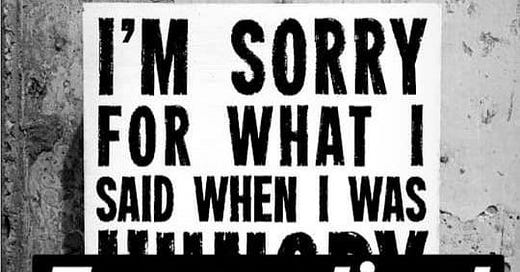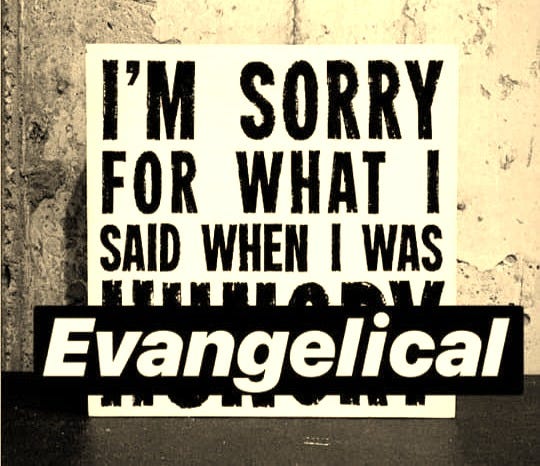When I was a college student and new to the faith, I read a spiritual memoir by Corrie Ten Boom, a Dutch woman who, along with her father and sister, hid Jewish people in their home during the Holocaust; they were eventually discovered, separated, and she and her sister Betsie were sent to Ravensbrück Concentration Camp. In her book The Hiding Place (read the excerpt here), she details an encounter in Munich after World War II. She’s speaking at a church and recognizes one of the guards from Ravensbrück approaching her after her sermon on God’s forgiveness. He does not recognize her nor does he remember Betsie, who died in the camp. He tells her that he was a guard in the camp where she was held…
“But since that time,” he went on, “I have become a Christian. I know that God has forgiven me for the cruel things I did there, but I would like to hear it from your lips as well. Fräulein”–again the hand came out–“will you forgive me?”
And I stood there–I whose sins had every day to be forgiven–and could not. Betsie had died in that place–could he erase her slow terrible death simply for the asking?
Like you’re probably doing right now, I have wondered over the years what I would have done in her place. In those moments when I struggled to forgive or simply couldn’t, I would think back on this story and feel a deep sense of shame because I knew I would not have been able to forgive him—those simple words could not erase my sister’s “slow terrible death.” But since the book is a favorite of evangelicals, you might have guessed that she, of course, does forgive him and shake his hand. It’s a powerful moment in the memoir and seems to have been the right decision for her.

Not So Sorry
I used to feel bad about that conclusion, about my hypothetical inability to forgive him. In fact I’m confessing it to you for the first time. I felt bad…until I read
’s stellar new book, Not So Sorry: Abusers, False Apologies, and the Limits of Forgiveness. This book challenged and freed me in so many ways!Oakes explores everything from the abuses and coverups of Catholic clergy to the #metoo movement to the Mother Emanuel Church shooting in Charleston, SC where a white supremacist murdered 9 Black church members. She discusses the pressure to forgive that victims and survivors experience, particularly in situations where the morally right thing to do might be not to forgive. Considering that perpetrators are sometimes not repentant nor are they making amends, as in the case of the white supremacist who entered the Mother Emanuel church with the intent to kill and has never once expressed remorse nor extended an apology to the families of his victims.
Oakes also discusses those who do extend apologies, often self-serving apologies, that aren’t followed by true repentance and reparations to the victim. In the case of Corrie Ten Boom, no empty apology would return her sister to her, and I don’t recall if the guard truly repented and sought to repair the harm he did. A more recent example is Pope Francis’ recent apology for homophobic remarks he made in a closed-door meeting; his apology, given through the Vatican press office, said that he never intended to offend or express himself in homophobic terms and he apologizes to those who were offended. That’s what I call a non-apology apology—instead of truly asking for forgiveness and focusing on the impact of your actions, you focus on your own intent and offer a general “I’m sorry” to the atmosphere and hope it lands well. Never mind the way your homophobic comments harm Catholic Christians who are part of the LGBTQ+ community.
I also think of the people I know who were hurt in Protestant churches—who were not offered apologies nor repair, who were kicked out of leadership or asked to leave, who lost their entire community and were called “divisive” and “disobedient” as they were pushed out the door for calling attention to abuses in leadership or to vulnerable people in their faith community who were experiencing abuse or exploitation. People like
and who’ve written about these experiences and the fallout and pain they’re still experiencing as a result. Not to mention the fact that the churches and leaders that harmed them continue with the same abuses they called out. Are these churches and leaders owed a reconciliation when they are not seeking one nor seeking change? This is not to say that people can’t forgive of their own free will, but they should not be pressured to do so and to seek reconciliation.Though her book is not expressly Christian but appeals to a more broad audience, Oakes also explores the way different faith traditions, including Christianity, speak about forgiveness and what’s required to receive it—you may not be surprised to learn that we’re not following these teachings as much as our own interpretation of them within our own cultures.
Evangelical Penance
A while ago I ran into the image you see below:
You can’t imagine how much I cringed! There’s so much for me to be sorry for…participating in and promoting purity culture, pushing my LGBTQ+ siblings to the margins of church and ministry life, perpetuating a soft patriarchy but a very harmful one nonetheless, and participating and encouraging participation in churches and ministries that, at best, centered male-dominated, European Christianity, and at worst, were just plain racist and misogynistic. Truth be told, there are probably even more harmful things I’ve engaged in that don’t come to mind at the moment. In fact, if I could change the image above, I would edit it to say “I’m sorry for what I said and did when I was an evangelical.”
On this side of an evolving faith, it has been difficult to reckon with who I was. For a time, I went to the opposite extreme of liberal faith, which mostly resulted in being very judgmental of people who are still a part of conservative evangelical churches, just like I used to be. This journey to the other side was facilitated by the election of Donald Trump and the support he received from evangelicals, including many people I used to call friends.
The one thing that has nagged at me through it all is that I remember so many sermons, Sunday School classes, Bible studies, small groups, and conferences where we talked about forgiveness. Not just the spiritual benefits of forgiveness (your heavenly Father won’t forgive you if you don’t forgive—that probably means you go to hell if you don’t forgive!), but the emotional and psychological benefits of letting go of resentment, bitterness, anger (even righteous anger) and any other socially-undesirable emotions. I’ve heard that people who forgive, even what seems to many of us unforgiveable, live longer, report more satisfaction with life, and have better relationships. I don’t know if this is true, but it sounds true. And even so, I have still struggled with to apply the many teachings on forgiveness I’ve heard over the years, both to forgive myself for having caused harm. This is another topic that Oakes explores in this book—how do you forgive yourself?
In case you can’t tell, I strongly recommend this book to you! I spent many hours this past month thinking about it and examining my own life in light of it. I know it will challenge you, too.
I think many of you might know that I’m back in the US. I’ll be moving into my new place in Silver Spring, Maryland, just outside Washington DC tomorrow (probably when you receive this letter!). I’m grateful to be back and will write more on that later. Be well and enjoy the lovely autumn whose arrival is imminent.
Cheers,
Karen





Thank you so much for such thoughtful words about my book, Karen. It's a topic I think many of us still struggle with even when we're long past a harm done to us, and so many churches and institutions still think these kinds of non-apology-apologies are good enough. It's a shame that we haven't progressed much at all in the ways we mangle forgiveness.
THANKS for this post! We are currently walking through a very hard church situation and the number of non-apologies being issued to the harmed is unreal. (We are no longer at the church, but are caring for her wounded.)
I snagged the audio book immediately!